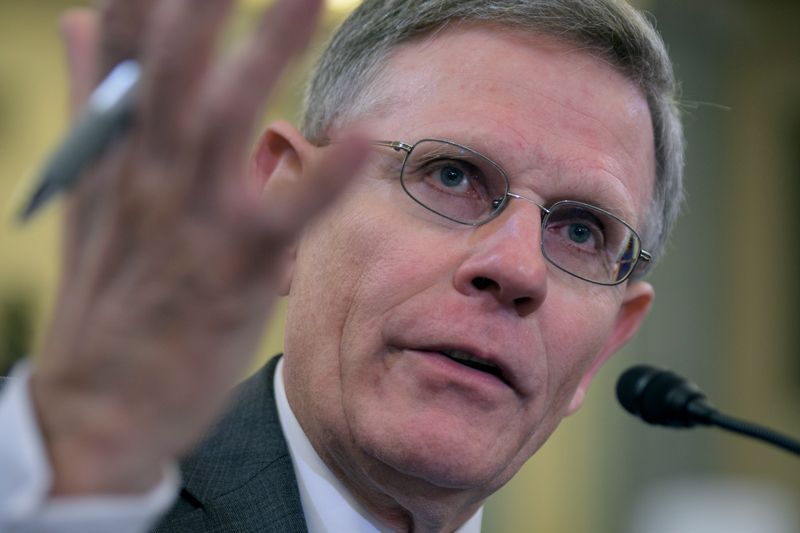The job description could come straight from the speech of a best man at a wedding: a great honour, but nobody really wants to do it. So just how will respected scientist Kelvin Droegemeier cope with being science adviser to a US president who seems to have a lack of interest in both science and advice?
So far, so good is one answer. Droegemeier was confirmed as the director of the Office of Science and Technology Policy (OSTP) on 2 January and remains in the post (or at least he did as Nature went to press). His tenure is already longer than some have managed in the Trump administration. Scientists will hope he can make up for lost time. The position had been empty since President Trump took office two years ago — a record.
Droegemeier, a meteorologist formerly at the University of Oklahoma in Norman, certainly has a lot on his plate. He needs to decide how to deal with the administration that he now serves as it tries to roll back climate regulations by mangling the science, and contradicting its own Fourth National Climate Assessment. And how to handle the Department of Health and Human Services, which is increasingly targeting potentially life-saving research that uses fetal tissue.
Like most of Trump’s advisers, Droegemeier seems to have little chance of influencing the president on major policy decisions, including some that many scientists stand against, and that much of the scientific evidence contradicts.
As such, he can best serve the scientific community by running things behind the scenes. An important example is to act as a link between the Office of Management and Budget (OMB) and relevant agencies such as the Department of Energy and the Environmental Protection Agency. That would help to restore the essential pressure on the OMB to keep the needs of science and research prominent in funding and policy decisions.
Droegemeier can also strengthen the OSTP in its role as an interagency coordinator. The different agencies, such as the Environmental Protection Agency and the National Institutes of Health, have experienced vastly different levels of political interference, and their directors arrived with differing levels of experience and expertise in the areas they now oversee. Closer and more efficient collaboration between them would allow government scientists and mid-level administrators to more effectively advance their programmes. And now the fourth climate assessment is complete, planning will begin on the fifth. Droegemeier could use his post to help keep the interagency effort on track – and perhaps even minimize political squabbles among the agencies.
Droegemeier will know that the president isn’t interested in lectures on climate change, but that disinterest could be an advantage here. He should work to keep the gears turning on existing climate and technology research programmes. And his extensive background in extreme weather could be effective in arguing for mitigation strategies couched under the theme of weather and natural-disaster preparedness.
To keep his office relevant, Droegemeier should find those areas of science and technology that do fit into the president’s agenda and exploit his rare interests for all they’re worth. Trump has championed technologies, such as drones and quantum computing; for the past 22 months, the OSTP’s only political appointee and default leader has been a deputy adviser for technology. Trump’s emphasis on jobs and economic competitiveness also dovetails with the rise of the clean-energy sector, in which companies and countries around the world are vying for leadership, and where the United States has an opportunity.
An immediate priority, however, must be pandemic preparedness. Trump’s reaction to the 2014 Ebola outbreak, that the United States should bar all travellers from West Africa, was short-sighted and wrong. Droegemeier should work on giving the United States the best possible plan for infectious-disease and global health crises. That means maintaining funding for emergency responses, promoting research into infectious diseases and improving relations with international partners and the World Health Organization.
Some realpolitik will be necessary. Droegemeier is going to need to present all his advice in terms of economics and US competitiveness. Being effective requires engaging with many sectors and power players, and making compromises that some scientists might think subjugate science to other interests. But compromises are necessary if science is to continue having a voice in the White House at all.





 Click Here for the Post
Click Here for the Post 








